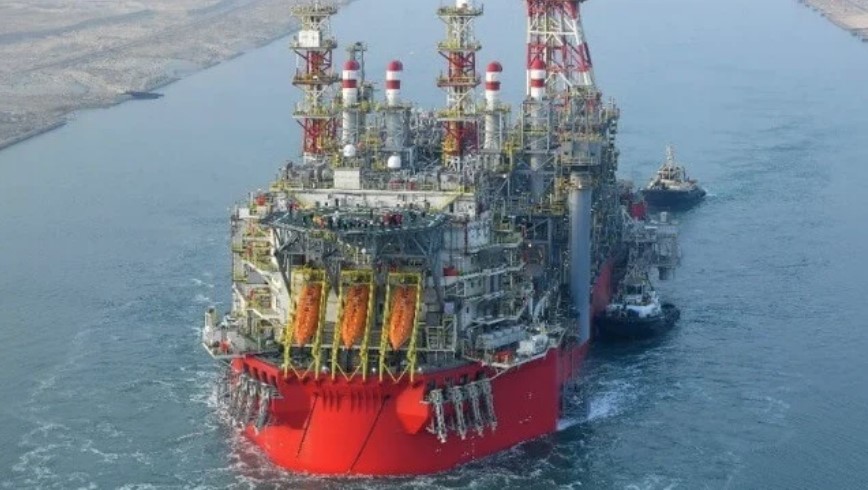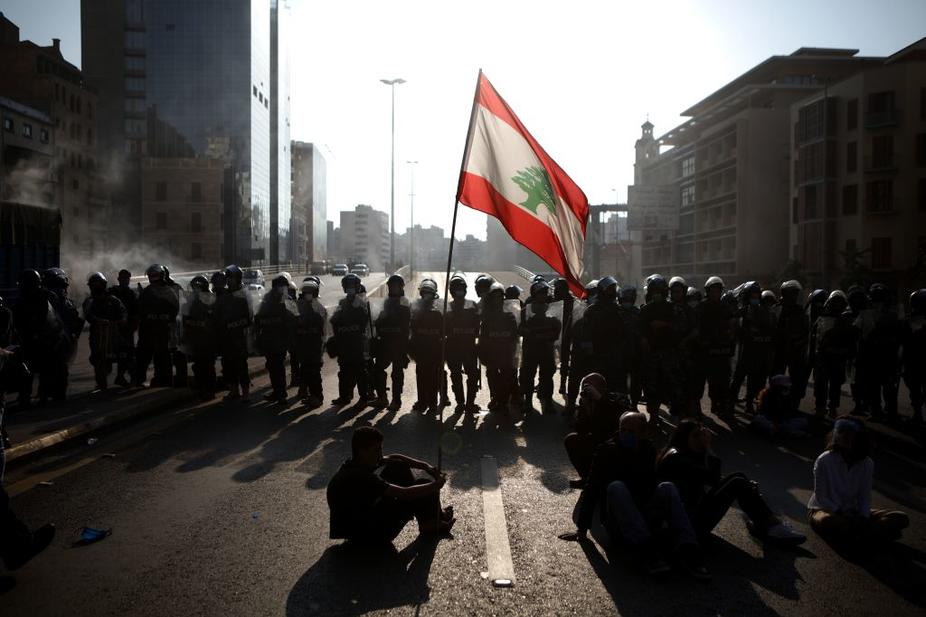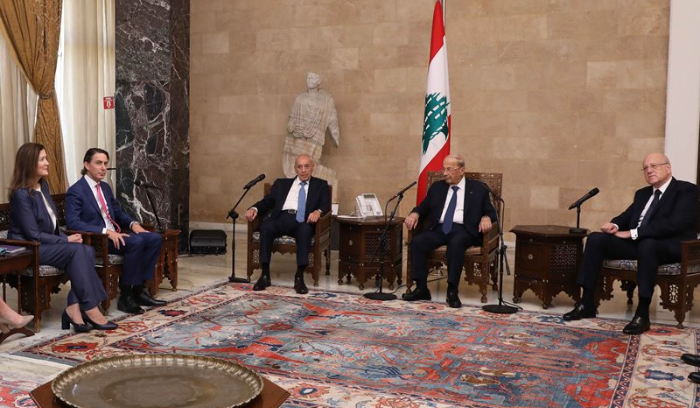
BEIRUT (AP) — Lebanon’s central bank lifted its remaining subsidies on fuel on Monday, gas station owners said, ending a year-long process of scaling back on the expensive program. The Central Bank over a year ago announced it would gradually lift fuel subsidies, to slow down the draining of its foreign exchange reserves. Fuel subsidies once cost the cash-strapped country some $3 billion annually. Last week, it subsidized just 20 percent of the cost of fuel imports. Lebanon is in the throes of a crippling economic crisis that has plunged three-quarters of its population into poverty and decimated the value of the Lebanese pound against the dollar by around 90 percent. The World Bank has described the collapse as one of the worst in the world in the last 150 years. Now, gas station owners will price fuel at the country’s “parallel market rate” — also known as the black market rate, Gas Station Owners’ Syndicate spokesperson George Brax told The Associated Press.
The local currency is still officially pegged at 1,500 Lebanese pounds to the U.S. dollar, but now trades at about 35,250 pounds at the black market rate. A liter of 95 octane gasoline currently cost just less than a dollar, but topping up the average car costs almost the monthly minimum wage. The black market rate heavily fluctuates with little transparency, possibly risking arbitrary price hikes regardless of global fuel prices. Under the subsidies program, the Central Bank would allow importers to exchange Lebanese pounds for US dollars to fund imports and keep prices stable. However, with Lebanon’s currency devaluation and skyrocketing inflation, gas station owners claimed the stable pricing was not sustainable, while security agencies struggled to crack down on fuel hoarding in warehouses and gas stations.
by english.aawsat.com — Lebanon’s Maronite Patriarch Bechara Al Rahi criticized Monday the efforts of some political parties to obstruct the implementation of …

by Julie Ray -- finchannel.com -- Unhappiness continued to rise worldwide in 2021, as the world overall became a sadder, more worried and more stressed-out place. But in two countries — Afghanistan and Lebanon — more people were living in misery than anywhere else on the planet. Last year, Afghanistan and Lebanon posted the two highest scores in the world — 59 and 58 — on Gallup’s Negative Experience Index, which is a composite measure of people’s daily experiences of sadness, stress, worry, anger and physical pain. Higher scores on the index mean more of a population is experiencing these emotions. The high scores for Afghanistan and Lebanon in 2021 notably displaced Iraq — which still ranked among the top most miserable countries — from the No. 1 spot on the Negative Experience Index that it had occupied for the two previous years. Iraq posted scores similar to Afghanistan’s and Lebanon’s current scores throughout its war against the Islamic State group.
Most of the countries with the highest scores on the Negative Experience Index were contending with some type of economic or political instability in 2021 that is mirrored in their emotional health. When Gallup surveyed Afghanistan as the Taliban retook control last year and as the U.S. withdrew its troops, Afghans’ emotional state reflected the chaos and uncertainty. Worry, stress and sadness soared to record-high levels in Afghanistan and were the highest in the world in 2021: 80% of Afghans were worried, 74% were stressed, and 61% were sad. Notably, no other population in the world has ever reported feeling this worried in the history of Gallup’s trend.
In Lebanon, political instability and government ineffectiveness have become the norm, but the country’s latest economic meltdown has been harder on people than any of its struggles since the civil war. The quality of life has deteriorated so much that 63% of Lebanese adults said they would like to leave the country permanently if they could — this desire is even stronger among those experiencing negative emotions. As life in Lebanon became harder, negative emotions surged to record highs. Nearly three in four people (74%) said in 2021 that they experienced stress “a lot of the day” during the previous day. About half of people in Lebanon also said they experienced a lot of sadness (56%) and anger (49%). Lebanon led the world in anger in 2021.

by english.aawsat.com -- The US mediator arbitrating negotiations of the maritime border between Lebanon and Israel, Amos Hochstein, reported “very good progress” towards arranging for a deal that benefits the Lebanese economy. Hochstein’s optimism followed his meetings with several Lebanese officials in Beirut. Many in Lebanon remain “cautious” as the results of talks suggest a delay in time before completing a deal, a matter which adds to rising tensions considering threats made by Hezbollah. Lebanon and Israel are engaged in US-brokered negotiations to demarcate maritime borders, which would help define each party’s share of oil and gas resources and pave the way for further exploration. Hochstein arrived in Beirut on Friday.
The US mediator held rounds of talks with senior officials, and met with President Michel Aoun, Parliament Speaker Nabih Berri, Caretaker Prime Minister Najib Mikati, in addition to Deputy Speaker of Parliament Elias Bou Saab, Minister of Foreign Affairs Abdullah Bou Habib and Director of General Security, Major General Abbas Ibrahim. Hochstein updated Lebanese officials on his contacts during the past weeks following a prior visit to Beirut. Besides discussing his contacts with the Israeli side, Hochstein also reviewed the results of his visit to France, including talks with the French energy company “Total,” which is in charge of drilling in Lebanese territorial waters, accompanying sources told Asharq Al-Awsat. Sources said that the US mediator “did not carry a decisive Israeli response to Lebanese demands,” stressing that the delay in reaching an agreement, “is something that does not satisfy the Lebanese who insist on achieving it as soon as possible.” Moreover, Lebanon categorically rejects establishing joint fields with Israel.
Khazen History


Historical Feature:
Churches and Monasteries of the Khazen family

St. Anthony of Padua Church in Ballouneh
Mar Abda Church in Bakaatit Kanaan
Saint Michael Church in Bkaatouta
Saint Therese Church in Qolayaat
Saint Simeon Stylites (مار سمعان العامودي) Church In Ajaltoun
Virgin Mary Church (سيدة المعونات) in Sheilé
Assumption of Mary Church in Ballouneh
1 - The sword of the Maronite Prince
2 - LES KHAZEN CONSULS DE FRANCE
3 - LES MARONITES & LES KHAZEN
4 - LES MAAN & LES KHAZEN
5 - ORIGINE DE LA FAMILLE
Population Movements to Keserwan - The Khazens and The Maans
ما جاء عن الثورة في المقاطعة الكسروانية
ثورة أهالي كسروان على المشايخ الخوازنة وأسبابها
Origins of the "Prince of Maronite" Title
Growing diversity: the Khazin sheiks and the clergy in the first decades of the 18th century
Historical Members:
Barbar Beik El Khazen [English]
Patriach Toubia Kaiss El Khazen(Biography & Life Part1 Part2) (Arabic)
Patriach Youssef Dargham El Khazen (Cont'd)
Cheikh Bishara Jafal El Khazen
Patriarch Youssef Raji El Khazen
The Martyrs Cheikh Philippe & Cheikh Farid El Khazen
Cheikh Nawfal El Khazen (Consul De France)
Cheikh Hossun El Khazen (Consul De France)
Cheikh Abou-Nawfal El Khazen (Consul De France)
Cheikh Francis Abee Nader & his son Yousef
Cheikh Abou-Kanso El Khazen (Consul De France)
Cheikh Abou Nader El Khazen
Cheikh Chafic El Khazen
Cheikh Keserwan El Khazen
Cheikh Serhal El Khazen [English]
Cheikh Rafiq El Khazen [English]
Cheikh Hanna El Khazen
Cheikha Arzi El Khazen
Marie El Khazen